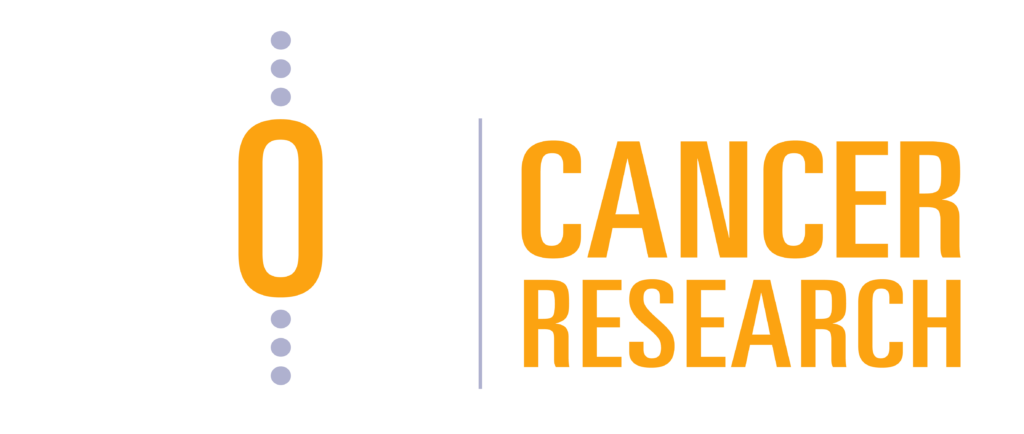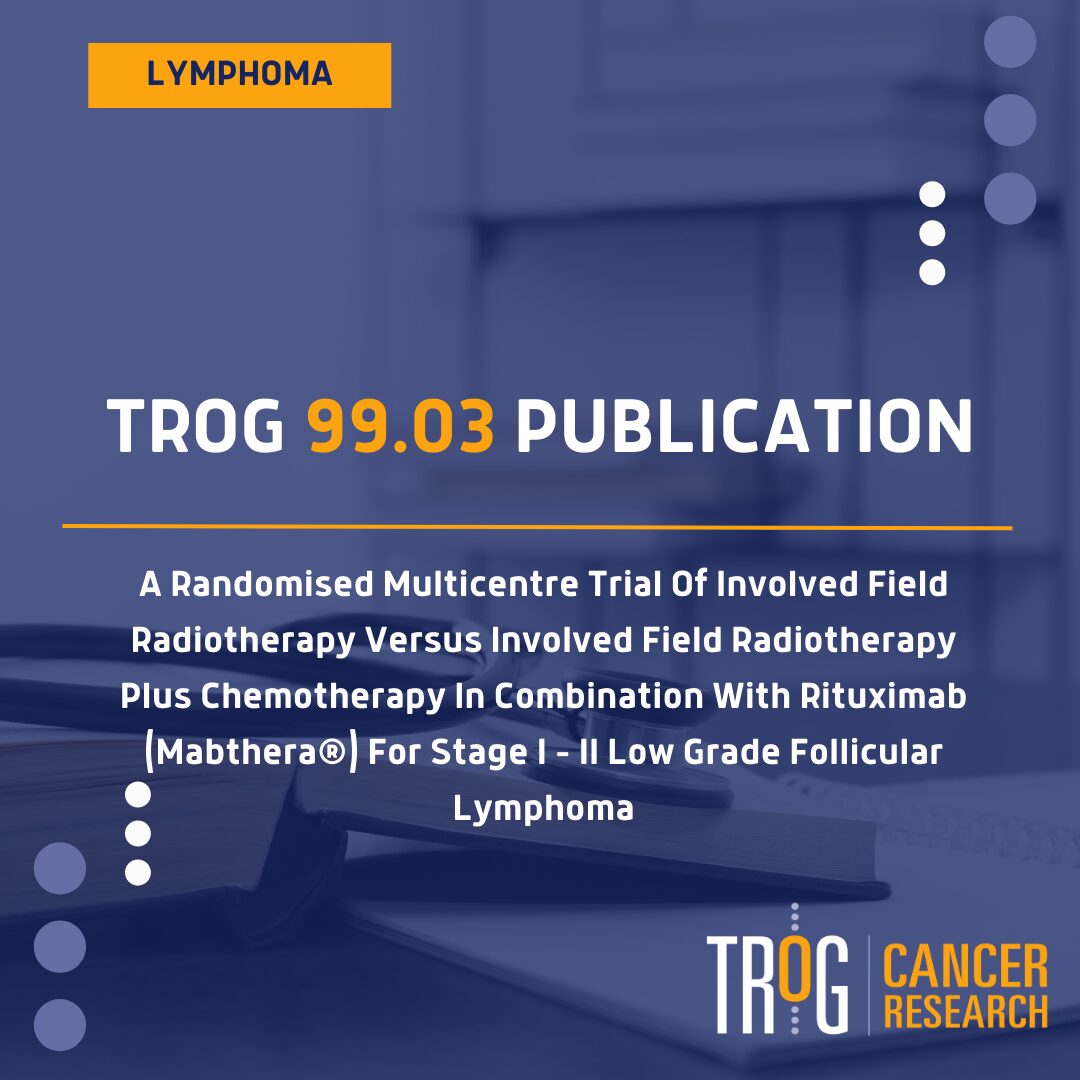5 December 2024:
Study shows huge improvement in progression-free survival with adjuvant rituximab containing therapy.
Newly published findings of extended follow-up from a TROG Cancer Research trial of radiotherapy plus chemo-immunotherapy in follicular lymphoma (TROG 99.03 – Follicular lymphoma) provide valuable evidence in support of changing the current standard management of early-stage follicular lymphoma (ESFL) with radiotherapy alone to radiotherapy plus immunotherapy-containing systemic therapy.
The findings, published in eBIOMedicine, are based on extended follow-up and translational laboratory research results from the TROG 99.03 phase III trial in early-stage follicular lymphoma (ESFL).
EFSL has an annual incidence of 2.5-3.3 per 100,000 population and is the most common form of indolent non-Hodgkin lymphoma in adults.
The randomised trial, which ran between 2000-2012, involved 150 patients from 21 centres in Australia, New Zealand and Canada. It initially compared field radiotherapy (IFRT) with IFRT plus chemotherapy (cyclophosphamide/vincristine/prednisolone –CVP). However, from 2006, the monoclonal antibody rituximab was added to the combined modality therapy (IFRT + R-CVP).
The study was conducted by TROG Cancer Research in collaboration with the Australasian Leukaemia and Lymphoma Group and Princess Margaret Cancer Centre in Canada.
Chief Investigator and lead author of the paper, Professor Michael MacManus from the Peter MacCallum Cancer Centre, said the new analysis updated the original outcome data published in 2018 and drew on translational studies to provide new information on the role of adjuvant rituximab.
After a median follow-up of more than 11 years, the trial group that received the combination therapy including rituximab demonstrated a dramatic improvement in progression-free survival compared to those who received standard radiation therapy or radiotherapy plus chemotherapy (rituximab-treated patients had long-term progression free survival of more than 80%, compared to less than 50% for patients who did not receive rituximab). Furthermore, patients treated with systemic therapy had a significantly reduced risk of either death or transformation to high-grade lymphoma.
The new analysis also revealed that elevated intratumoural CD8 gene expression had a significant impact on patients’ prognosis, being independently associated with improved progression-free survival.
These new data have important implications for the current management of early-stage follicular lymphoma, as well as for designing further clinical trials, the authors said. This trial shows the importance of immune-related factors in the prognosis of this disease and shows that immunotherapy added to radiotherapy can dramatically improve outcomes.
Congratulations to Prof MacManus and all research team members involved in both the original trial and subsequent analysis of this important study.
Read the paper in eBioMedicine,
Related Post
TROG Member Prof Paul Keall’s innovative research recognised in two Premier’s Awards
LATEST NEWS; 26 November 2025 Medical physics researcher and
Automated quality assurance tool shows promise in TROG 18.01 NINJA trial
LATEST NEWS: 25 November 2025 Vital quality assurance (QA)




